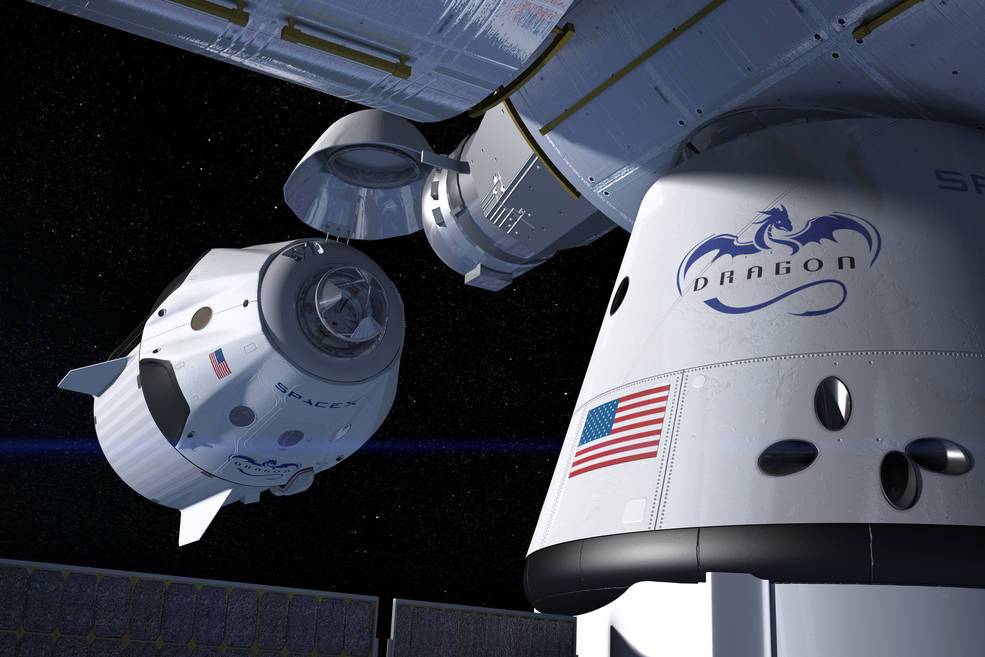= ASTRONAUTICAL EVOLUTION =
Issue 154, 22 May 2020 – 51st Apollo Anniversary Year
| Site home | Chronological index | Subject index | About AE |
Read this post on Wordpress if you wish to leave a comment
Why the Human Exploration of Space?
Adapted from a letter sent to David Baker, editor of Spaceflight magazine, 22 May 2020 – now printed in the August 2020 issue, p.42.
Is it possible to justify the expenditure of large sums on astronaut space exploration when there are so many other priorities on Earth?
David Baker, the editor of Spaceflight, recently commented that our planet is “stressed by an ever-burgeoning tide of human proliferation and the insatiable quest for growth, expansion and consumption”, and he went on to suggest: “perhaps we should be moved more than ever to consider why we are going” into space (Spaceflight, June 2020, p.5). Last month Charles Cockell asked the same question in lecture 36 of the “Life in the Universe Pandemic Series” on his excellent YouTube channel. With a new era of human spaceflight about to start, the question is a timely one.
I want to think a bit about a related question: is it possible for a global industrial civilisation to continue to prosper sustainably for timescales of at least thousands of years?
Clearly, there is a great deal of awareness nowadays of the many threats which could cause societal collapse, including:
- Climate change (whether natural or induced by industrial pollution);
- Supervolcano eruption;
- Asteroid impact;
- Nuclear war;
- Ecological breakdown;
- Runaway robotic or genetic technologies;
- The takeover of democracies by authoritarian demagogues.
It is also clear that, despite political differences among the governments of the world’s great powers, all countries are linked closer than ever before by ties of economics, finance, media, politics, tourism and trade, so that even a regional setback can stress countries globally. This is now being vividly demonstrated, of course, by the Covid-19 pandemic.
The situation were we to succeed in colonising the Solar System would be different.
Barring the invention of both improbably powerful propulsion systems and improbably cheap energy sources to fuel them, the economies of different worlds would be very much more loosely connected than those of different countries today. Just as in the ancient world the Roman Empire could rise and fall with little effect in China, and none at all in the Americas, so if in that future Solar System, say, civilisation on Earth were to collapse, then that would have little effect on Mars and even less among the satellites of the giant planets. The reason would be the same: the geographical spread of the human diaspora would once again have outrun easy reach of the transport technologies of the day. Of course the pre-industrial human family was still vulnerable to a number of potential global environmental disasters – but on a Solar System scale no such disasters are in sight.
The same would be true – only far more so – of an interstellar human diaspora. If this can be achieved, then the human heritage is secure for as far into the future as one wishes to look. This remains true even if every single colony is doomed to ultimate extinction: in such a population of loosely related civilisations, the overall species prospers so long as each constituent society produces during its lifetime at least one daughter society which creates a new settlement at interplanetary or interstellar distance, either to break virgin ground, or to replace a civilisation which had formerly lived there but had died out.
If therefore we value our human culture and our heritage, we will see expansion of our civilisation into space as essential for its long-term preservation as well as for future growth.
In 1989, Mark Hempsell wrote in Spaceflight that the future facing mankind would be either a space age or a stone age. I believe he was correct. To put it in terms of popular TV serials: the human future will look either like Star Trek, or like Game of Thrones (as I wrote earlier in this post). If certain environmental campaigners and Marxist sociologists do not hold this principle at the forefront of their thinking, if they condemn technological progress and yearn for what they see as a more natural way of living, then it is incumbent upon them to offer a plausible third way for our species in the long term. I have not yet seen any such alternative scenario.
The stresses on Earth’s biosphere and on human society itself caused by continuing economic, population and technology growth now come into focus: they are the growing pains attendant upon the evolution of a new kind of industrial society – one that has never existed before – that can prosper sustainably both on Earth and at extraterrestrial locations. It should be our goal to promote both growth and sustainability and, on Earth itself, environmental responsibility. Where new technologies and new patterns of doing things can contribute to these goals they must be embraced. Commercial passenger spaceflight, nuclear fusion power, artificial intelligence, robotics, artificial meat, farming without soil and under artificial light – these are some of the key factors in our progress at present. Another would be colonising some of Earth’s desert regions – not as a simulation of a Mars expedition for half a dozen people for a few weeks, but building for permanence and long-term growth.
We go into space, therefore, because only through interplanetary and ultimately interstellar growth is the human heritage made secure for the long term. The alternative, sooner or later, is inevitable decline and ultimate extinction.
To make comments, please visit this post on Wordpress.
| Site home | Chronological index | About AE |
